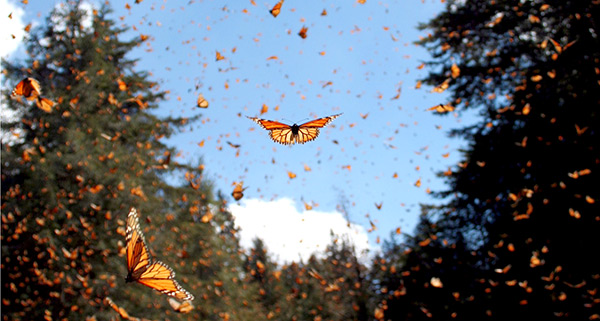|
|
 |
|

|
Monarch
Butterflies at Library
One of the most widely recognized butterflies in the United States is
also the one in the most danger of becoming extinct. Habitat
loss, illegal logging, row crop agriculture and over use of pesticides
are just a few factors that have led to the staggering population
decrease. What can we do to reverse the damage?
Spend an evening with Darke County Parks Naturalist Mandy Martin to
find out! She says “We’ll explore the natural history of this
magnificent creature and discover all the efforts nationwide to
spearhead movements to save this iconic species.” Mandy will also
share what Darke County Parks has done to join the effort to save the
monarch and how you can get involved.
After the presentation we will be making seed bombs! “These
little balls of seed, clay, and compost are pre-planted with butterfly
approved wildflower seeds. This fall just toss them on the ground,
press them lightly into the ground, and watch them grow in the spring.”
Join us Wednesday September 27th at 6:00 in the Greenville Public
Library. This is a free, family-friendly event. First come
first serve seating with light refreshments provided.
Did you know that since 2006 the Library has also been certified as an
official Monarch Waystation by “Monarch Watch” of the University of
Kansas? This program was organized in 2005 by Chip Taylor, whose
goal it is to have thousands of these “resource patches” created in
back yards, school and church grounds, parks, nature centers, golf
courses, and retirement homes.
According to www.MonarchWatch.org, a waystation is an intermediate
station between principle stations on a line of travel. The
principle stations for monarchs are the sites in Mexico they use for
overwintering and the northern sites they use for reproduction in the
breeding season. Without nectar flowers, fall migratory
butterflies would be unable to make the journey to Mexico.
What distinguishes a Monarch Waystation from an ordinary butterfly
garden is the inclusion of and emphasis on milkweed. The plant is
essential because milkweeds are the only plants that monarch
caterpillars recognize as food. MonarchWatch recommends that
waystations include at least 10 milkweed plants.
|
|
|
|

